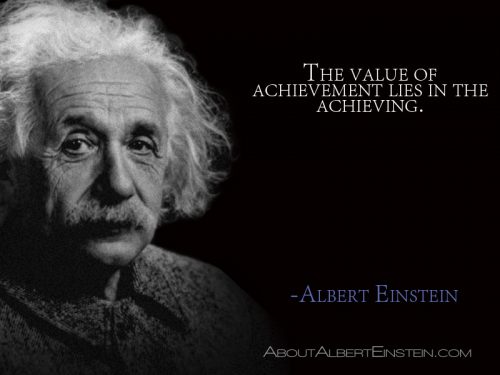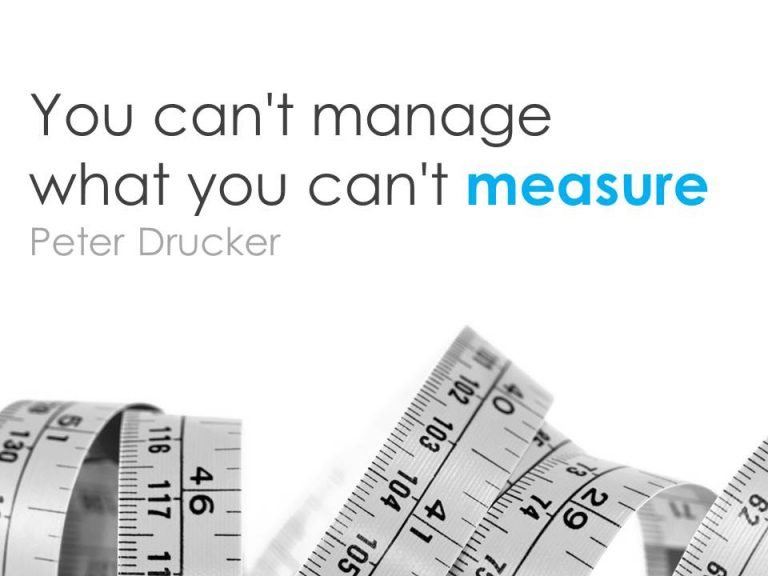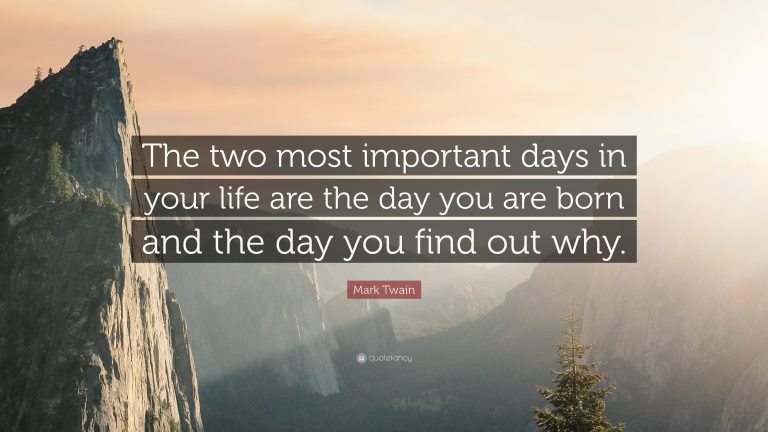The value of achievement lies in the achieving

I ask myself how it is possible that some people achieve more while others don’t. The same goes for teams – regardless of the conditions, some of them manifest this “achieving ability” while others simply don’t.
Drawing from my experience, I will hereby try to answer the following question:
What are the main factors differentiating people and teams that achieve great results from those who don’t?
I’m not trying to say that I’m some kind of result-achievement expert – all I’m willing to do is to present my (non scientific) reflections regarding three levels of achieving.
Level 3 of achieving results: I do things
This is the basic, lowest level of achieving results. On this stage you are the happiest, because there is no reason to asses what you do, just as there’s no particular responsibility for the results of your actions; in fact, the desired results might not even be clearly defined. You just go to work, and do things as you are told to. You don’t have to analyse what you do in three dimensions. You’ve got one flat line that you follow; something happens – you react. The alarm rings – you wake up, something unexpected happens in the company – you deal with it, then you return home, do some other things that you might consider a rest, and go to sleep.
What to do to get out of this level?
- Permanently ask yourself a question – why?
- Why are you doing what you do – what is the aim of your actions? What makes it important for you? What is the reason for doing these things? Do your actions bring you closer to achieving your goals?
- These are the hardest questions that you can ask yourself. And as they force you to be honest with yourself, they may often be painful.That is why not many people do it.
- Create the plan…
- …on the paper – it’s a must. Otherwise there’s a big chance you will get stuck half-way and in order not to feel guilty about it you will keep deceiving yourself by telling yourself, ‘This here is what I wanted in the first place, and I’m fine with it as it is’.
When we think we are not on the 3rd level, but we are
- If you work your fingers to the bone, but you don’t know your goals – it has nothing to do with achieving results. It only means that you like staying busy, it makes you feel important. It’s as if you were saying, Just look at me, look how efficient I am, how many hours I spend at work, how quickly I move, how fast I speak… IT HAS NOTHING TO DO WITH ACHIEVING RESULTS, and I could easily undermine any such boastful self-important rant with a simple question: Why? Why exactly are you doing this?
- I know my goals, but I didn’t note them down, besides there is no reason for talking about them anyway. This line of thought is one of the most common tricks that our minds play on us. Instead of thinking into the future, our minds like to “do things” here and now, follow the line in the flat world, consumed by solving the problems of the day… and remain in the perpetual ‘I’m feeling so busy and important’.
Level 2 of achieving results: I do goals
On this level you don’t feel so good about your goals, because they relate to the promise that you’ve made to yourself and it brings you down when you don’t accomplish them. In many cases achieving your objectives requires taking uncomfortable steps, for example working hard when you are tired. Besides, we all face situations when we must admit that we failed, and we must admit it to the most important person in our lives – ourselves. On this second level we undertake the commitment to achieve the results – which brings responsibilities on our back.
What to do to get out of this level?
- Discover your identity – answer the question: Who are you?
- What is your attitude to life? Where do you stand morally? What is the meaning of your work? How do you want to see yourself? All those questions are very difficult, even philosophical, and to answer them requires a good deal of personal maturity. But without answering them, you live a life of a soulless machine. You just do more, you are more efficient, you adjust your actions to match your goals – all that brings you satisfaction, but it doesn’t really make you feel complete.
When we think we are not on the 2nd level, but we are
- When we have goals but not take the responsibility
- One of the most common examples is when we talk about what we want to do, and we do nothing with it. It could be summarised with the following statement: I currently work in here, but in the future I would like to do something else, and I’m preparing myself for it. I have met people in my life who were willing to change the path they followed, and they were working hard to do it. However, when you don’t truly mean it, you stop on a very comfortable position: I’ve got goals – check; I talk about them, which makes me look efficient – check, BUT I don’t really have to be good at any of my activities. In this situation: I don’t have to try too hard in my current job – because eventually I’m going to change it anyway, and I don’t have to be good at my additional activities, because – after all – they are only extracurricular pursuits. Once I’ve heard that: A hobby is something that you do, and you’re so poor at it that no one would ever consider paying you for this. It is fine to do something that makes you happy, but again, it has nothing to do with achieving results, because there is no inherent responsibility in it.
Level 1 of achieving results: I do what I love
On this level you do things, and accomplish goals, not because of your ego, but because you know perfectly well who you are, and you realise that our conscious actions match your dreams.
When we are on the 3-rd level we don’t take responsibility for what we do, we have good emotions but nothing more. On the 2nd level we try to achieve our goals and we succeed or fail, which either way produces lots of extreme emotions. But on the 1st level we do whatever is necessary to become who we really are, we act in the spirit of true integrity I doubt if there is a shortcut to it. You have to set goals in your life in order to recognise your true identity. Moreover, you cannot get to know yourself only by thinking about it. You have to collect actual experiences that deepen your knowledge and understanding of yourself. Ultimately, that will allow to create yourself through a difficult process of achieving results.
Because
the value of achievement lies in achieving
(A. Einstein)
…which only works if you climb onto next levels of maturity – by asking yourself the following questions:
1. Why do you do what you do?
2. Who are you?
(W. Idzikowski)






